Place the speedlight at a distance from the camera by employing a flash remote trigger.
If you have previously worked with speedlights, you can probably already imagine the benefits that a flash remote trigger can bring to the table. The ability to place the light source away from the camera is invaluable and having control over several lights from just one unit is also a huge deal.
Previously, flash triggers had to always be physically connected to the light with a cable, but in the era of wireless technology, that is no longer a necessity. The prices range from $40 up to $100 depending on the model.
Each wireless flash trigger comes with a distinct feature set. Some models offer TTL functionality that automatically detects the lighting conditions and tweaks the power output to accommodate them, while other units force you to make such adjustments manually.
Some triggers can also take advantage of High-Speed Sync which allows you to employ camera flash with higher shutter speeds, which is essential for capturing quick actions scenes. Such functionality may or may not be a must-have depending on the type of photos you usually take.
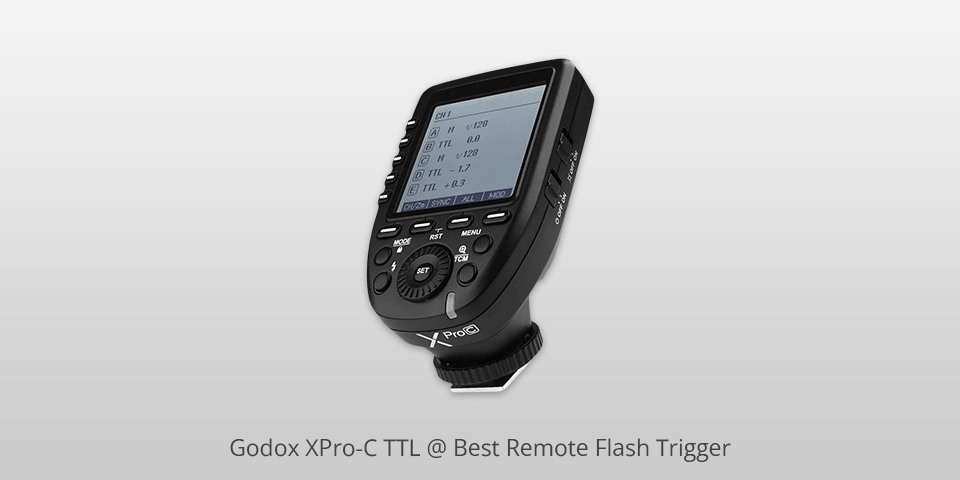
Max sync speed: 1/8000 second | Frequency: 2.4 GHz | Range: 328' | Channels: 32 channels
This model employs the 2.4GHz Godox X wireless radio system and is designed exclusively for Canon cameras while being capable of triggering the flash from up to 328’ away and offering the remote power control feature for all compatible devices.

If you want to enjoy maximum efficiency and control, you can create up to 16 groups with the help of the 32 supported channels and then access 99 wireless ID parameters for minimizing interference from nearby devices. Other than the standard manual and TTL control modes, this Canon accessorize also offers such interesting modes as stroboscopic flash and second-curtain synchronization.
You can tweak the flash exposure compensation in the -3 to +3 EV range while also wirelessly adjusting the modeling light, zoom value, and other parameters.
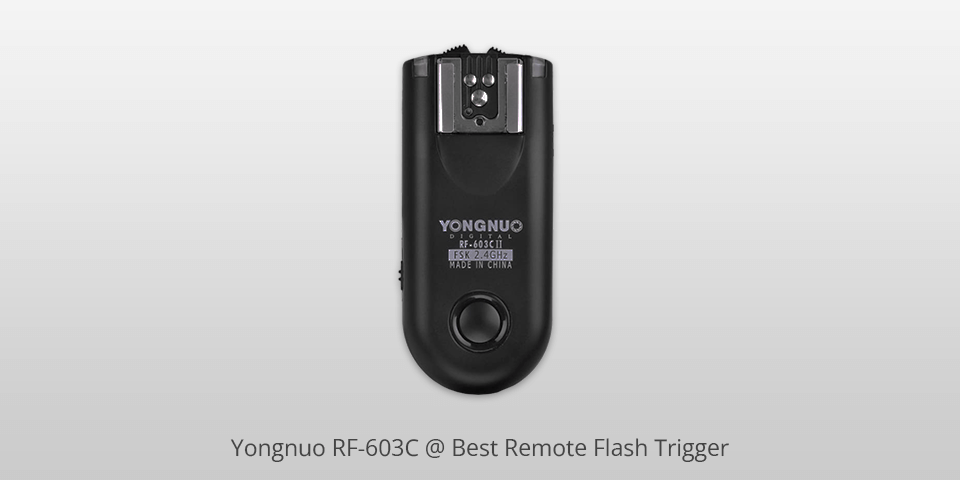
Max sync speed: 1/320 second | Frequency: 2.4 GHz | Range: 328' | Channels: 16 channels
This FSK-based system that triggers flash remotely allows you to achieve superior speed, distance, and stability. The RF-603C can transmit its signal over a distance of up to 100 meters. This model is comprised of a pair of Sam transceivers. You can set it to single transmit mode, which is handier for working with flash or leave it in transceiver mode, which automatically swaps between transmit and receive states as needed.

This product offers single contact triggering, wireless waking up, and the ability to employ the flash via your camera’s hot shoe. Its other capabilities include studio light triggering (via PC synchronization cable), wireless shutter release, simultaneous multi-camera and flash control, and several others that allow you to create breathtaking flash photography.
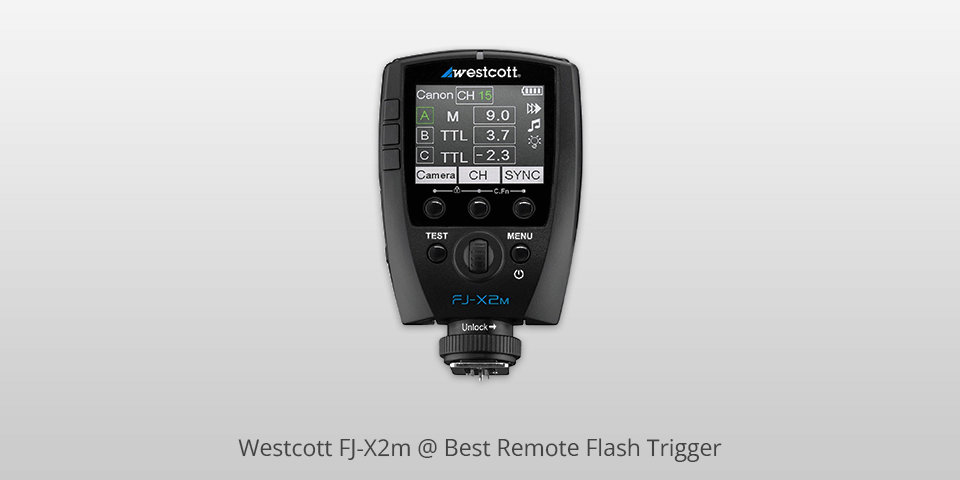
Max sync speed: 1/8000 second | Frequency: 2.4 GHz | Range: 985' | Channels: 16 channels
The FJ-X2m is an advanced system that is supplied with multi-brand tech and can be used with almost any camera model out there to trigger the FJ400 flash unit. You can also pair it with a broad range of Canon and Nikon flashes, Sony (using an adapter) as well as Fuji, Panasonic Lumix, and Olympus cameras. This system offers an intuitive UI, provides a wireless range of nearly 985', and 200,000 triggers per charge.

The FJ-X2m is packed in a compact, lightweight casing with a built-in lithium-ion battery and an integrated adjustable hot shoe that allows you to attach the camera. Mount this unit to your camera’s hot shoe to wirelessly manipulate the FJ400 flash and take advantage of its TTL mode, High-Speed Sync (HSS), Rear Curtain Sync, group and channel configurations, Group Exposure Compensation, TTL to Equivalent Manual feature, modeling lamp parameters, etc.
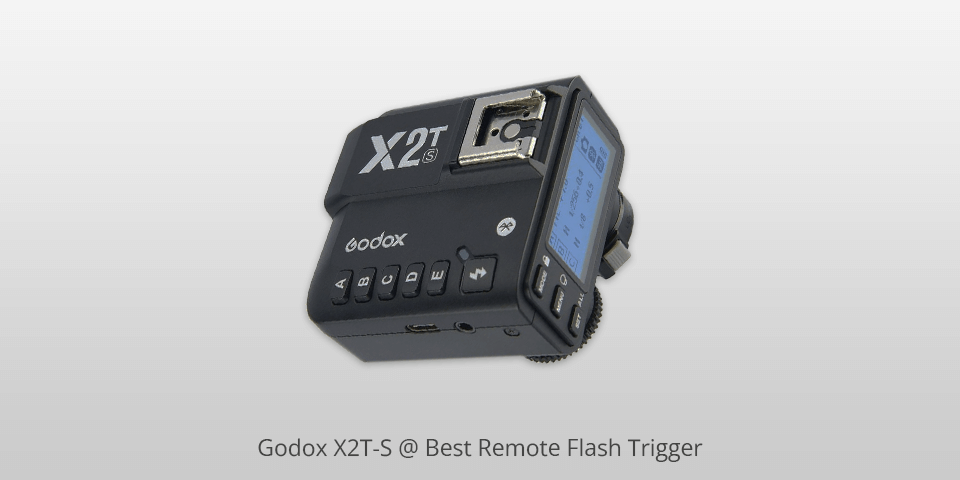
Max sync speed: 1/8000 second | Frequency: 2.4 GHz | Range: 328' | Channels: 32 channels
This handy wireless flash trigger is compatible with studio flash units, speedlights, and camera shutters. You can pair it with Sony hot-shoe-connected DSLRs and Mirrorless cameras. One of the biggest benefits of using the X2T-S model is that it provides high-speed sync support for most flash units that are supplied with TTL tech. It can reach an impressive sync speed of 1/8000 of a second.
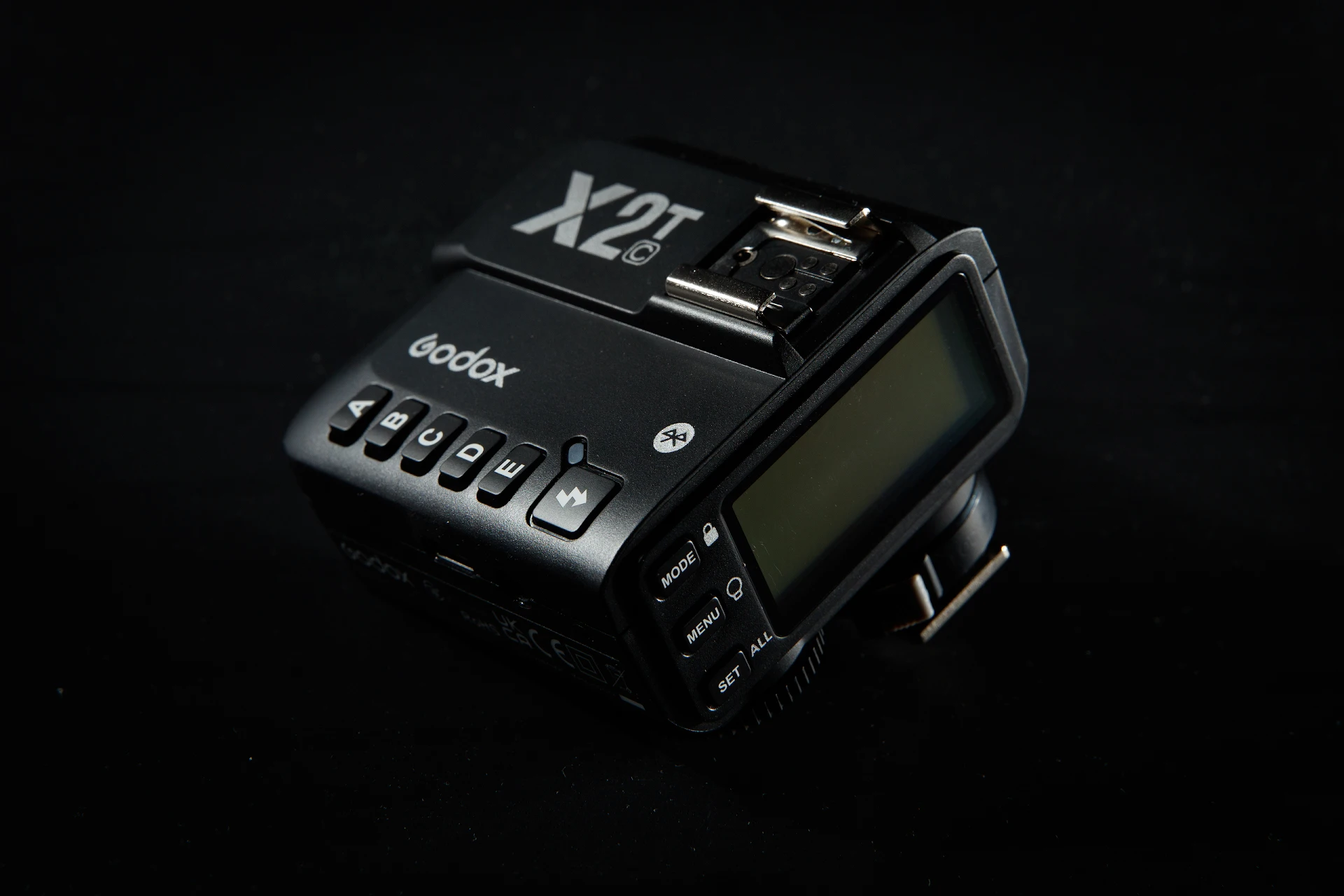
Meanwhile, the GodoxPhoto application allows you to manage the flash mode, power output, modeling light setting, flash beeps, and several other aspects. Thanks to the provided backlight, using the provided group and function buttons is extremely convenient even if you’re working in low-light conditions. The recently introduced scan setting feature allows you to automatically find a channel that is the least likely to suffer from interference.
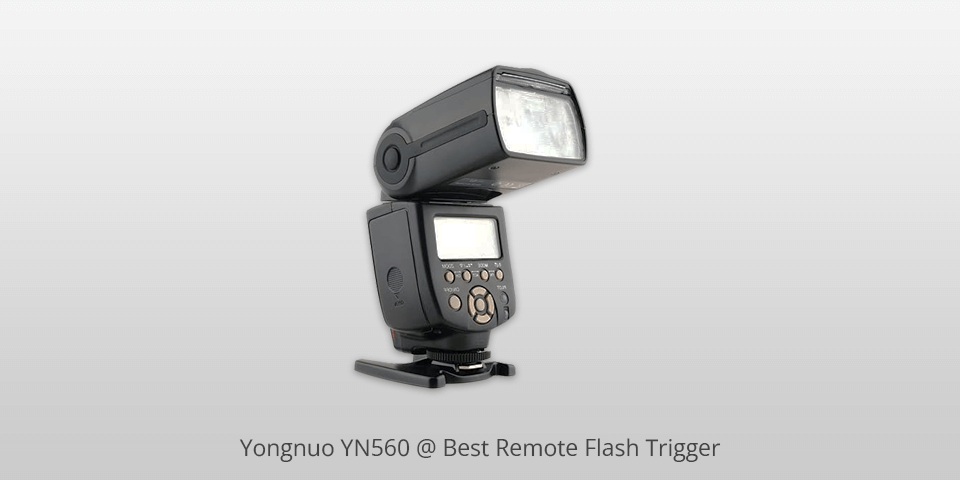
Max sync speed: 1/250 second | Frequency: 2.4 GHz | Range: 300' | Channels: 16 channels
The YN560 IV is the best flash remote trigger in the YN560 speedlight series, as it introduces wireless master control along with a slave mode. It’s an improved version of the YN560 III that also offers superior speedlight range and a great bang for your buck, representing a fantastic option for any photographer who is interested in mastering off-camera lighting on a tight budget.
:max_bytes(150000):strip_icc()/3LW4072366-Yongnuo-YN560-2-b09f705bd3d14eaa9ba4c66b14b8beaa.jpg)
This system offers full bounce and swivel lighting thanks to the -7 to 90° tilt range and 270° of rotation provided by the flash head. You can also trigger the flash optically via instant synchronization or skip pre-flash functionality. The integrated PC synchronization port further expands the unit’s connectivity options while the provided multi-mode lets you enjoy stroboscopic lights. The YN560 IV is powered by 4 AA batteries and has a recycle time of 3 seconds. The package is delivered with a protective case and a useful stand.
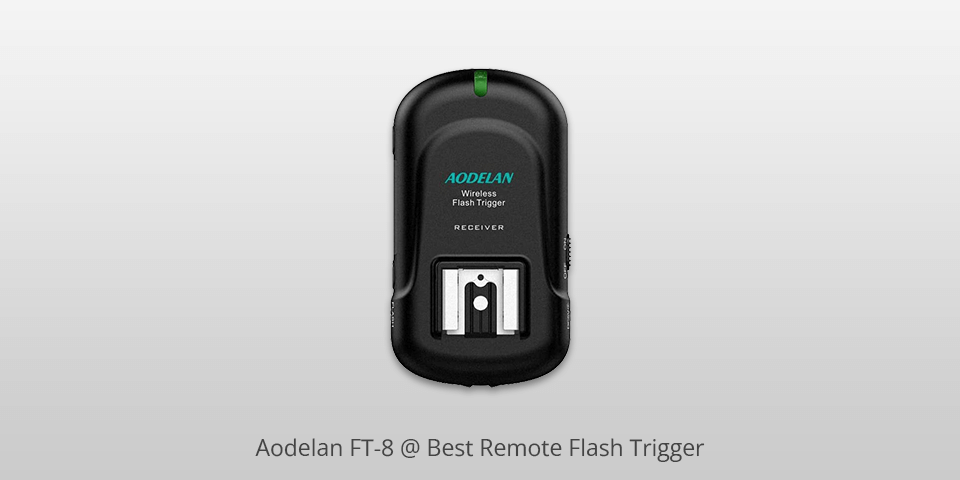
Max sync speed: 1/250 second | Frequency: 2.4 GHz | Range: 650' | Channels: 8 channels
The FT-8 is a straightforward and dependable system that can be used for remote flash triggering. It provides a convenient method for employing off-camera flash, as the adjustable transmitter can be set to an upright or low-profile position. Meanwhile, the 8-channel transmitter and receiver components offer a range of up to 200 meters and are supplied with a “fire-all” channel feature.

Thanks to the provided Profoto radio system support, this model is capable of triggering and controlling Profoto lighting gear that has an integrated Air system, while offering flash power control and modeling light control, which is essential for high key photography. You can pair the FT-8 with your camera with a sync cable, which is the ideal solution for remotely releasing the shutter in synch with wireless flash units.
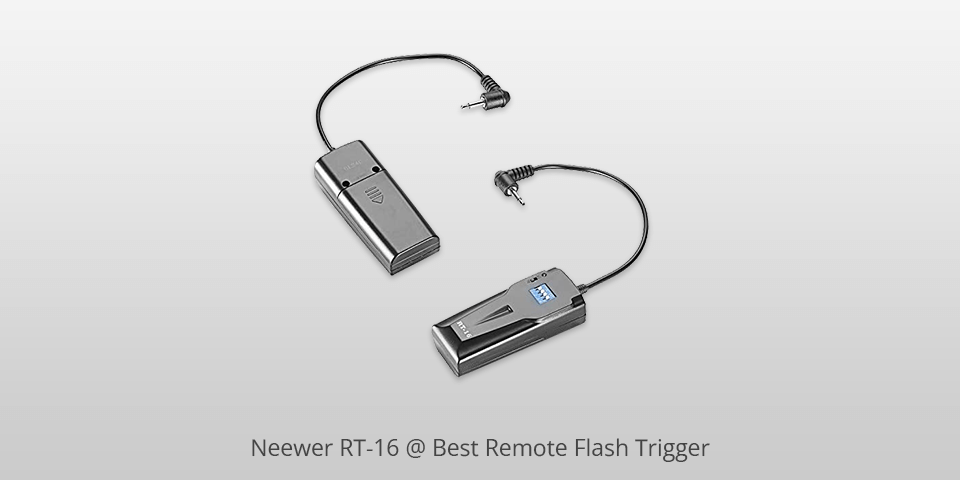
Max sync speed: 1/200 second | Frequency: 344 MHz | Range: 90' | Channels: 16 channels
The RT-16 studio flash triggering system is supplied with a 1/8" plug and a 1/4" adapter, which make it extremely convenient to use. The transmitter is powered by a 23A 12V battery that you can enable by taking out the insulation tab. You can also save battery life by using the on/off switch on the receiver. Additionally, setting up this system requires minimum effort since the transmitter doesn’t have any channel parameters.
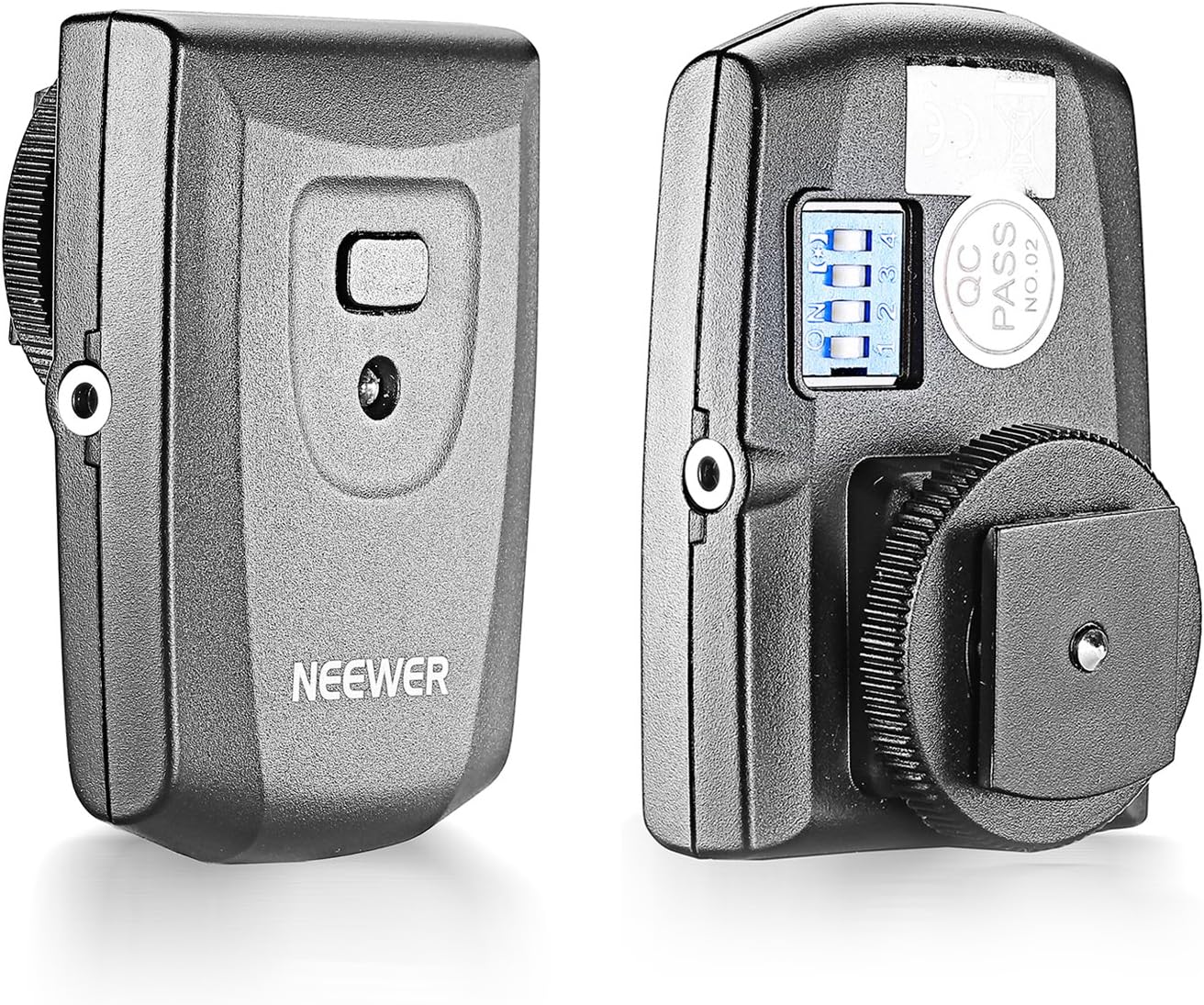
You can trigger the transmitter via either the camera's hot shoe, the test button on top, or a synchronization cable that you'll have to purchase separately. The RT-16 offers 16 distinct dip-switch configurations for you to pick from to make sure the system doesn't suffer from interference caused by nearby devices that operate on the same channels.
| IMAGE | NAME | FEATURES | |
|---|---|---|---|

|
Godox XPro-C
OUR CHOICE
|
CHECK PRICE → | |

|
Yongnuo RF-603C
BUDGET
|
CHECK PRICE → | |

|
Westcott FJ-X2m
MULTI-BRAND
|
CHECK PRICE → |
Employing the flash off-camera grants you more control over the lighting conditions and allows you to deal with some of the issues tied to mounting the flash unit to the camera's hot shoe. Below you’ll find a rundown of the key features you should take into account when picking the best flash remote trigger.
Compatibility. The vast majority of wireless flash triggers allow you to employ the flash by sending a signal from the hot shoe or PC sync cable regardless of the camera model you pair them with. That said, if you'd like to enjoy extended control over the lighting or have automatic power control, then you should opt for a trigger unit that supports your camera.
TTL. The automatic power control feature, commonly referred to as TTL (through the lens), is usually proprietary to specific camera manufacturers. For example, a Canon TTL flash trigger won’t support this feature on a Nikon camera even though it can still be employed for simply using the flash unit.
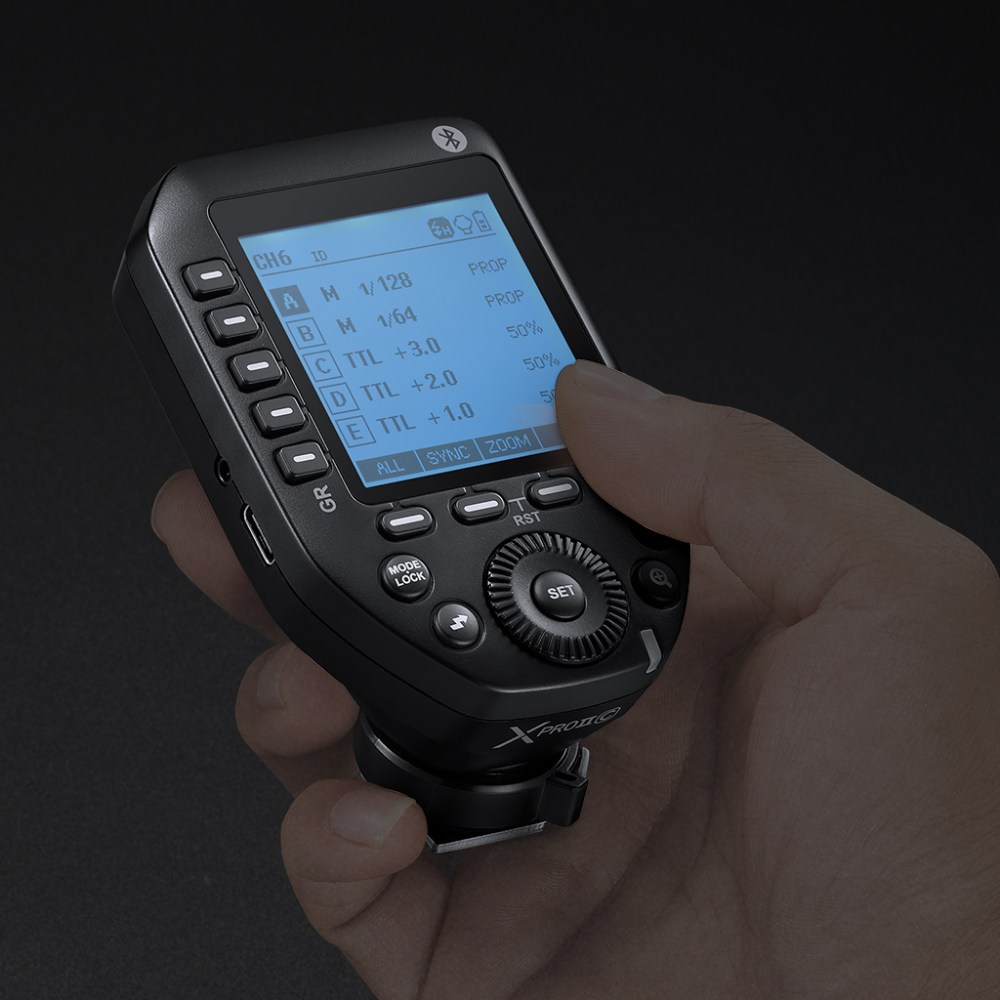
High-speed sync. High-Speed Synchronization (HSS) is a feature that lets your camera reach higher shutter speeds with a flash, granting you even more control over the lighting. The average camera has a flash synchronization speed of about 1/250 of a second, as the camera synchs the strobe flash with the shutter opening. If you’d like to employ the flash at higher shutter speeds to balance out the ambient lighting, you’ll have to get a flash trigger with HSS support.
Channels and groups. If you're employing a radio connection, you have to ensure the flash trigger's transmitter and receiver operate on the same radio channel so that they can be paired with each other. A lot of models come with multi-channel support that helps prevent potential interferences from other flash units or devices that could be used in the vicinity of your position.
Transmitter range. Regardless of whether you’re employing an IR or radio-based flash trigger, you’ll have to make range concessions. The smaller range of IR models is typically not an issue for a regular photography studio but for bigger studios and elaborate outdoor setups, you’ll need to get a transmitter and receiver that are capable of covering the required distance to capture the whole scene.
Frequency considerations. The frequency of many radio flash triggers can severely suffer from interference depending on which country you live in. A lot of models employ the 2.4GHz frequency, which can be highly prone to interference based on your location. Meanwhile, the 340-354MHz and 900MHz frequencies are just as popular while also being more dependable and less susceptible to interferences.